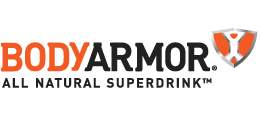 |
| By Panhard [GFDL CC-BY-SA-3.0] / Wikimedia Commons |
The
megabrand's trademark lawyers recently sent a cease and desist letter to a soft
drink competitor called Sodastream, about its new, aggressive international advertising
campaign.
Sodastream
sells a variety of flavoring and carbonating devices that allow consumers to
essentially create and bottle their own soft drinks. Part of Sodastream's
pitch is that it claims to be more environmentally-friendly than its
pre-packaged soft drink competitors.
In 2010, after a successful IPO, Sodastream launched an international campaign purportedly aimed at raising awareness of bottle and can consumption. The campaign involves the display of 9-cubic meter cages in various countries, each containing 10,657 bottles and cans gathered by Sodastream from landfills.
On its
website, Sodastream makes the following environmental and competitive claims
about its products:
 |
| Eirik Newth / Creative Commons |
"One SodaStream carbonator makes 60 or 110 liters,
equivalent to 170 or 310 aluminum cans! When empty, the carbonator is
refilled and reused, ready to make more fizzy and tasty soda whenever you want
it."
While
Coca-Cola's demand letter is focused on allegations under South Africa's unfair
competition law, the broader legal question is relevant within the U.S., as well.
Indeed, this
question is particularly germane given Sodastream is apparently bringing its marketing campaign right to Coca-Cola's doorstep in Atlanta, Georgia.
Despite arguments that such advertising is protected free speech under the First Amendment, the use of a competitor's branded product in such a commercial manner may nonetheless be
actionable under U.S. intellectual property law.
First,
federal trademark law contains an anti-dilution provision, which
prohibits the use of commercial advertisements which dilute a brand by
"tarnishment." Dilution can be actionable even if the consumer
is not confused as to the source of the goods being advertised.
Second,
by creating a heaping pile of trash made up (at least in part) of Coca-Cola
branded products, Coca-Cola could argue that there is an implied
and unfair product and brand disparagement that harms its goodwill among consumers without justification or substantiation.
Sodastream would presumably counter by claiming that the Coca-Cola product is not being disparaged. Rather, Sodastream could contend that it is merely engaging in a form of truthful, protected free speech that accurately demonstrates the environmental impact that canned soda has.
In the end,
if ever litigated, the final outcome in the U.S. would turn on whether a Court would consider the Sodastream campaign a form of constitutionally protected free speech about the environmental impact of a competitor, or nothing more than trademark dilution and product disparagement by an overly aggressive upstart.



